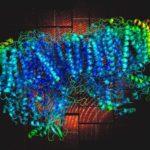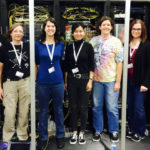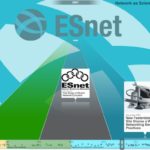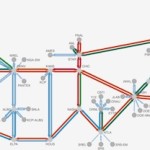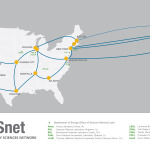Researchers at the Department of Energy’s SLAC National Accelerator Laboratory are playing key roles in two recently funded computing projects with the goal of developing cutting-edge scientific applications for future exascale supercomputers that can perform at least a billion billion computing operations per second – 50 to 100 times more than the most powerful supercomputers in the world today.
Software Defined Networking to Speed Data for Cori Supercomputer
NERSC is working with Cray to explore new ways to more efficiently move data in and out of Cori, a powerful supercomputer being constructed in California. “We need to take advantage of a network guru’s design for moving data for a specific experiment but have SDN do all of the bookkeeping for which compute nodes need to be connected to what networks,” said Brent Draney, group lead for the Networking, Servers and Security Group at NERSC. “I would rather see our network engineers analyze the data flow and how to meet the need instead of having to manually reconfigure the network for the demands of each job.”
NSF Sponsors Women Engineers for SCinet Buildout at SC16
The Networking at SC (WINS) program officially launched today. Funded through a grant from the NSF and ESnet, the program sponsors eight career women in the research and education network community to participate in the build out and live operation of SCinet. “Not only is WINS providing hands-on engineering training to the participants but also the opportunity to present their experiences with the broader networking community throughout the year.”
ESnet Timeline Celebrates 30 Years of Servicing Science
The Department of Energy’s Energy Sciences Network (ESnet) has published a 3D timeline celebrating thirty years of service. With the launch of an interactive timeline, viewers can explore ESnet’s history and contributions.
ESnet Releases Code for Building Online Interactive Network Portals
ESnet has released open source code for building online Interactive Network Portals. “Now that the libraries are made available, the team hopes that other organizations will take the code, use it, add to it and work with ESnet to make the improvements available to the community.”
High Speed Transatlantic Network to Foster Science Collaboration
Scientists across the U.S. will soon have access to new, ultra high-speed network links spanning the Atlantic Ocean, thanks to a project currently underway to extend ESnet (the U.S. Department of Energy’s Energy Sciences Network) to London, Amsterdam and Geneva.

